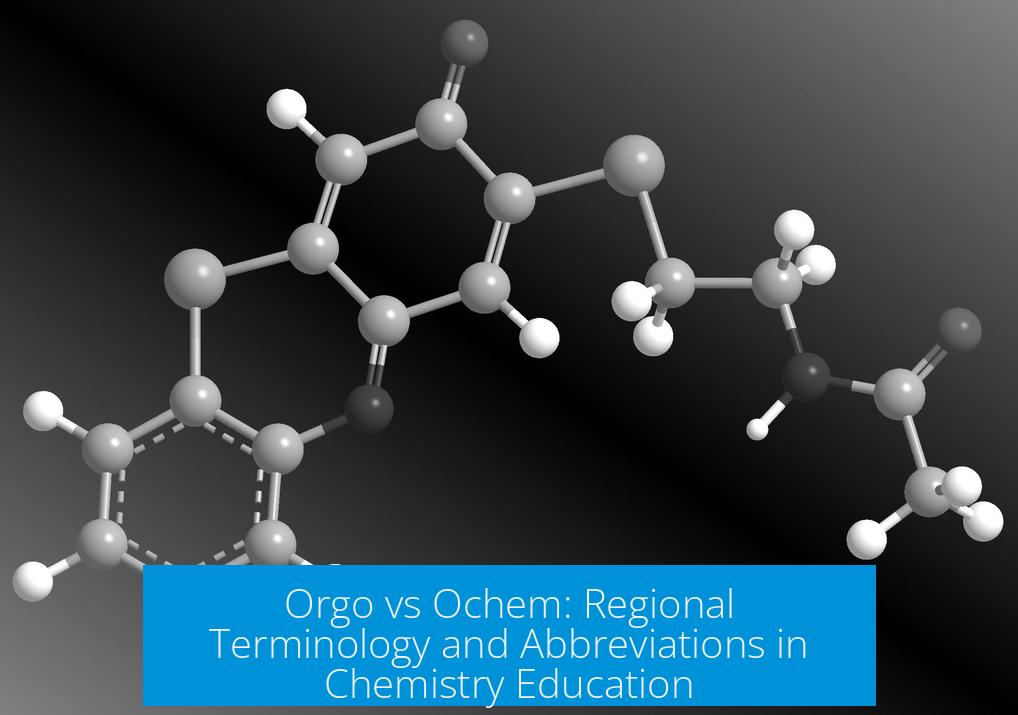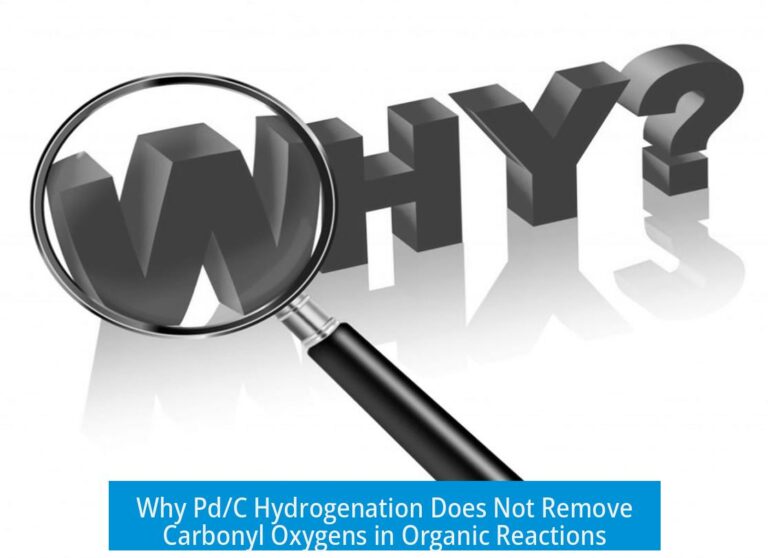Understanding “Orgo” vs “Ochem” by Region
The terms “orgo” and “ochem” both refer to organic chemistry, but usage differs greatly by region. These variations reflect local academic cultures and linguistic preferences rather than fundamental differences in the subject. Globally and within countries, chemistry students and professionals adopt certain terms based on tradition, convenience, or regional identity.
Terminology in Australia
In Australia, organic chemistry is often abbreviated as “org”. This contrasts with the United States, where “orgo” or “ochem” are common. Australian students also abbreviate inorganic chemistry as “inorg”, and physical chemistry as “fizz-chem”. Biological chemistry, however, is never abbreviated to avoid confusion with biochemistry.
Informal comments from Australian chemists reveal opinions about these abbreviations. Some find “orgo” confusing, linking it humorously to “orgonic chemistry,” a discredited theory. Others feel “orgo” sounds like a medical condition.
Germany’s Chemistry Abbreviations
Germany favors abbreviations such as “OC” for organic chemistry, “PC” for physical chemistry, and “AC” for inorganic chemistry. Theoretical chemistry goes by “TC”. These abbreviations are concise and straightforward, avoiding ambiguous slang.
Feedback from German students confirms the preference for “OC”, reflecting simplicity and easy communication across academic settings.
The United Kingdom’s Approach
In the UK, organic chemistry is primarily referred to as “organic”, without widespread use of abbreviations like “orgo” or “ochem.” This may reflect a cultural tendency against informal or abbreviated jargon in academic settings.
Several UK chemists express unfamiliarity with the abbreviations common in North America. This indicates how terminology varies even among English-speaking countries.
United States: Regional Variations
In the US, the divide between “orgo” and “ochem” is notable, especially between regions and institution types.
Midwest
- Michigan: Common use of “orgo,” though some find it awkward.
- Iowa: “Ochem” is rare; “orgo” dominates in smaller colleges.
- Nebraska: Debate exists, with some pushing for “ochem.”
Interestingly, smaller private Midwest colleges lean toward “orgo,” while larger metropolitan universities tend to prefer “ochem.” This split reflects social and institutional norms.
East Coast
- New York: Both “orgo” and “ochem” heard, with some adopters shifting between terms.
- Ohio: Majority prefer “ochem” and resist “orgo.”
East Coast usage trends heavily toward “ochem,” except for occasional variation in New York city-area schools. Some East Coast chemists critique “orgo” as incorrect or awkward.
West Coast
- California: Universally uses “ochem.” “Orgo” is almost unheard of.
- Oregon: Mixed usage with nostalgia for “orgo” in some PhD students recalling undergraduate days.
The West Coast largely champions “ochem” but some nostalgic or personal preferences for “orgo” persist, especially among those moving between regions.
Florida and Hawaii
- Florida: “Orgo” is the dominant term.
- Hawaii: Usage favors “ochem.”
Smaller states or unique locales like Florida and Hawaii show distinct preferences, with “orgo” favored in Florida, while “ochem” prevails in Hawaii.
General Observations on Abbreviations
- “Ochem” aligns with scholarly abbreviations such as “pchem,” “gen chem,” and “biochem.” This congruence supports its use in formal contexts.
- “Orgo” is sometimes seen as informal, humorous, or awkward, due to its phonetic resemblance to medical terms.
- Many find “orgo” inconsistent since the spelling is unlike the actual word—it truncates “organic” oddly.
- Abbreviation practices vary globally. Outside North America, “orgo” and “ochem” are virtually unused, with local codes and acronyms preferred instead.
Social and Cultural Dynamics
Chemistry students often display playful dynamics in abbreviation use. For example, shortening “analytical chemistry” can cause humorous reactions. The regional divide in “orgo” versus “ochem” functions like dialectal differences seen in language (e.g., “soda” vs. “pop”).
The split traces cultural identity and academic tradition more than linguistic efficiency. Some chemists theorize these terms serve as informal markers of locality rather than strictly serving communication needs.
Comparison Summary Table
| Region | Term(s) Used | Notes |
|---|---|---|
| Australia | org, inorg, fizz-chem | Biological chem not abbreviated |
| Germany | OC, PC, AC, TC | Simple and formal abbreviations |
| United Kingdom | organic | No common abbreviation |
| Midwest (USA) | orgo (small colleges), ochem (large metro) | Mixed use, school size matters |
| East Coast (USA) | mostly ochem | Ohio prefers ochem; NYC mixed |
| West Coast (USA) | ochem | California consistently ochem |
| Florida | orgo | Regional preference |
| Hawaii | ochem | Regional preference |
Implications for Chemistry Students and Educators
Understanding regional terms helps educators tailor communication and materials. For international or cross-regional academic environments, awareness of differences avoids confusion. It also eases student integration when moving between regions or countries.
Career chemists benefit by recognizing these linguistic patterns in networking and collaboration. Using the appropriate regional term ensures clearer conversations and reflects cultural sensitivity.
Key Takeaways
- “Orgo” and “ochem” both refer to organic chemistry but vary regionally.
- Australia uses “org,” Germany uses “OC,” and the UK prefers “organic” without abbreviation.
- In the US, Midwest small colleges use “orgo,” while large metro schools and West Coast favor “ochem.”
- Florida predominantly uses “orgo,” Hawaii “ochem.”
- “Ochem” matches other chemistry abbreviations and is seen as more formal, while “orgo” can sound informal or awkward.
- Terminology differences serve as cultural markers beyond mere abbreviations.
What are the common abbreviations for organic chemistry in different countries?
Australia uses “org,” Germany says “OC,” and the UK says “organic” without abbreviation. The U.S. varies by region, with “orgo” and “ochem” both popular.
Why do some U.S. regions prefer “orgo” while others say “ochem”?
Small Midwestern colleges often say “orgo.” Large cities and coasts lean toward “ochem.” This is tied to local culture and school traditions.
Is “orgo” viewed negatively anywhere?
Some Australians find “orgo” odd or medically sounding. Others see it as awkward or inconsistent. Still, many U.S. students use it casually.
How is organic chemistry referred to in Australia compared to the U.S.?
Australia calls it “org” and avoids abbreviations in biological chemistry. The U.S. has split terms: “orgo,” “ochem,” and sometimes just “organic.”
Does the East Coast prefer “orgo” or “ochem”?
East Coast regions generally prefer “ochem.” Ohio strongly supports “ochem,” while spots like New York show mixed usage but lean toward “orgo” by some individuals.





Leave a Comment